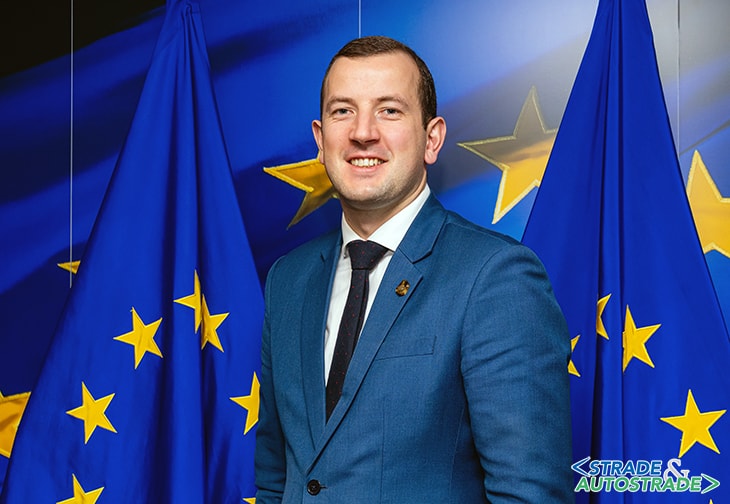![]() Per la versione in Italiano: https://www.stradeeautostrade.it/incontri-e-interviste/virginijus-sinkevicius-luomo-che-crede-nelleconomia-circolare/
Per la versione in Italiano: https://www.stradeeautostrade.it/incontri-e-interviste/virginijus-sinkevicius-luomo-che-crede-nelleconomia-circolare/
Virginijus Sinkevičius, Commissioner for the Environment, Oceans and Fisheries in the Ursula von der Leyen Commission, answered our questions on the future of transport after the safety emergency of these months
The youngest member of the European Commission team that took office on the last December 1st is Lithuanian Virginijus Sinkevičius, who has been appointed Commissioner for the Environment and the Oceans. Although Sinkevičius is less than thirty years old, he has already been Minister of Economy and Innovation of his Country.
“Strade & Autostrade” interviewed him during the lockdown period for the health emergency from Covid-19 and asked him some questions about the future, regarding both environmental and transport policies.
“Strade & Autostrade”: “How far do you think the current health emergency will affect the environmental policies of the future?”.
“Virginijus Sinkevičius”: “While in the midst of an unprecedented health crisis severely impacting the economy, many people are looking towards the future with hope. The current situation creates the conditions for accelerating a systemic change towards a more sustainable future.
We cannot expect a different outcome if we are going to do the same things all over again. It is clear that our health and well-being are intimately connected to the well-being of our planet.
We need to step up action to advance in the transition towards a climate-neutral circular economy, where resources remain in the economy for longer and waste is minimised.
The circular economy, with its underlying principles of changing the way we produce and consume, proposes a new economic model, which will make the EU more resilient, innovative and competitive.
The european Green Deal remains the basis for Europe becoming a future-ready continent, and the recovery package that we are working on will reflect these considerations focusing on the need to protect our citizens, the planet, and foster sustainable growth”.
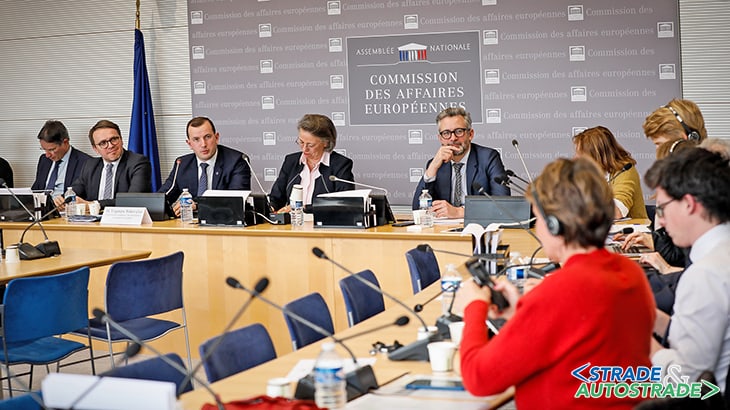
“S&A”: “The one concerning the circular economy is an important topic of your task as Commissioner: at the strategic level, which are the main measures taken in this direction?”.
“Virginijus Sinkevičius”: “The Commission adopted a new Circular Economy Action Plan adopted on 11 March. With this plan we set an ambitious, future oriented agenda to roll out initiatives along the entire life cycle of products, from design and manufacturing to consumption, repair, reuse, recycling, and bringing resources back into the economy.
The Commission will propose a sustainable product policy legislative initiative: the core of this measure will be to widen the Ecodesign Directive beyond energy-related products so as to make the Ecodesign framework applicable to the broadest possible range of products and make it deliver on circularity.
The Commission will work also on empowering consumers to participate in the circular economy. For example, this will be done through an initiative to tackle misleading green claims and to provide consumers with information on the reparability and durability of products. We also want consumers to start benefiting from a true “right to repair”.
Moreover, the Commission will propose minimum mandatory green public procurement (GPP) criteria and targets in sectoral Legislation and phase in compulsory reporting to monitor the uptake of GPP.
On GPP, I want to refer also to what has already been done, such as the EU GPP criteria for Road Design, Construction and Maintenance, published in 2016, or the one on Road Transport, published in 2019. They are very important tools for the public sector to deliver on circular economy.
We will also focus on the sectors that use the most resources and where the potential for circularity is high. The Commission will launch concrete actions on electronics and ICT, packaging, plastics, textiles, construction and buildings, and food.
In addition, the Commission will propose a new regulatory framework for enhancing the sustainability and boosting the circular potential of batteries.
We should not forget that, from a broader perspective and in the context of the European Green Deal, the forthcoming Comprehensive European Strategy on Sustainable and Smart Mobility will look into enhancing synergies with the circular economy transition, in particular by applying product-as-service solutions to reduce virgin material consumption, use sustainable alternative transport fuels, optimise infrastructure and vehicle use, increase occupancy rates and load factors, and eliminate waste and pollution”.
“S&A”: “Specifically for an area which affects us closely such as road and highway works, can we expect the use of increasing percentages of recycled asphalt in the coming years?”.
“Virginijus Sinkevičius”: “There are a series of work strands under which recycled asphalt may be considered.
For example, the Commission will consider a revision of material recovery targets set in EU Legislation for construction and demolition waste and its material-specific fractions.
More generally, to exploit the potential for increasing material efficiency and reducing climate impacts, the Commission will launch a new comprehensive Strategy for a Sustainable Built Environment.
One of the pillars of the Strategy will be achieving sustainability performance of construction products in the context of the revision of the Construction Product Regulation, including the possible introduction of recycled content requirements for certain construction products, taking into account their safety and functionality.
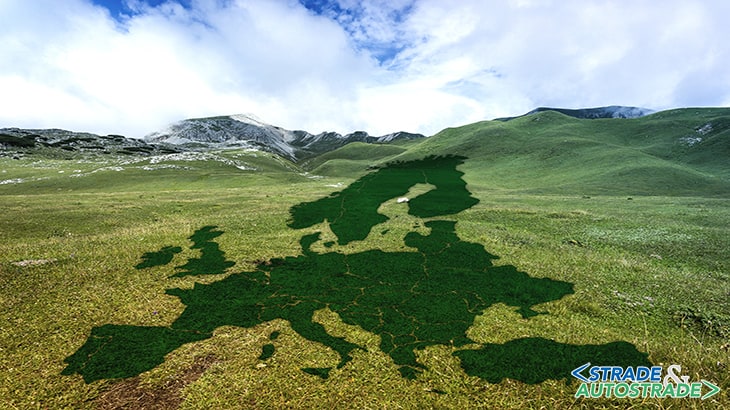
In parallel, the Commission also plans to assess during 2021 the scope to develop further EU-wide end-of-waste criteria for certain waste streams based on monitoring Member States’ national and single-case decisions on end-of-waste.
The future revised Construction Product Regulation could be considered as the legal framework for such EU-wide criteria. Meanwhile, we expect Member States to step up efforts and recognition of end-of-waste cases at national level under the revised EU waste Legislation”.
“S&A”: “Environment and transport infrastructures: is this really an incompatible pairing?”.
“Virginijus Sinkevičius”: “Transport infrastructure enables our mobility, which is at the core of the internal market. Still, we have an opportunity to use the existing, and especially the future infrastructure to spearhead the transition into a cleaner and more sustainable mobility.
For instance, the Green Deal envisages a major uptake in funding and support for zero-emissions infrastructure and we are ready to support the deployment of public recharging and refuelling points forming a compact network.
On the other hand, Europe is a densely populated continent where our biodiversity and protected habitats and species are adversely impacted by urban sprawl, agriculture and infrastructure such as road networks, so we need to fully account for nature and ecosystems when considering expansions to the road network, in line with applicable EU Legislation and environmental impact assessments.
Let me also add that protecting water and ecosystems is a priority. Otherwise our communities will enter into a vicious circle of competition for water.
The European Green Deal calls on us all to put the health of our planet at the very basis of our development. Failing to do so would, sooner or later, also mean exposing our cities, farmers, transport, hydropower or tourism to the major risks related to water scarcity.
Securing economic development in harmony with nature protection is not impossible: science provides solutions, either nature-based ones, such as green infrastructures, or others based on eco-hydrological principles”.
“S&A”: “Do you agree with the solutions adopted, at European level, to preserve flora and fauna in the construction of major infrastructural routes? How would you reinforce such solutions?”.
“Virginijus Sinkevičius”: “The main legal framework for protection of European fauna and flora is constituted by the Birds and Habitats Directives.
The Habitats Directive requires that every plan and project which may have negative impact on Natura 2000 sites, including roads and other infrastructure, has to be subject to an appropriate assessment and can only be approved if it is confirmed that it will not damage those sites.
In certain cases, exceptions are allowed to accommodate an overriding public interest, if there are no other alternatives and sufficient compensatory measures are put in place. These assessments have to be done taking into consideration the conservation objectives of the Natura 2000 sites.
I think this is a solid yet sufficiently flexible mechanism to ensure we protect our most valuable nature sites while taking the public interest and proportionality into account.
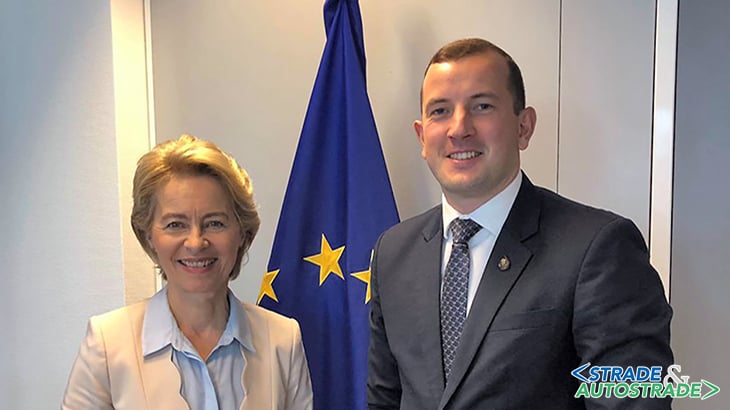
Another common problem relates to the lack of good integration of environmental protection goals, including for biodiversity, in the early stages of the planning process.
Mitigation measures are often only added once it turns out that a project will have negative impact on protected habitats and species.
Yet, in many cases these negative impacts could be avoided if the needs of nature protection are taken into account from the beginning of the planning process through a more strategic approach.
In this respect good knowledge of the environmental conditions, such as habitat mapping, knowledge of breeding sites or migration corridors, is crucial.
I would also like to emphasize the need to involve the Stakeholders early on in the planning process. All those who will be affected by the project need to be heard and have access to the necessary administrative and legal review procedures.
This is guaranteed by the EU law and it is also in the interest of the project promotors to genuinely engage with Stakeholders to find the best solutions which reconcile the interests of the transport sector and nature protection.
The same applies to inland waterways. The protection of biodiversity has to be part of water infrastructures. European Legislation, in the area of nature and water, jointly protects flora and fauna during the construction and operation of major infrastructure.
This can be fully compatible for instance with inland navigation. We have worked together, between the environment and transport departments of the European Commission, on the concept of “Good Navigation Status” and ensure that this is fully compatible with the objectives and requirements of nature and water Legislation”.
“S&A”: “How do you expect European ports to change for the future?”.
“Virginijus Sinkevičius”: “Ports will without doubt remain important hubs for transport and logistical chains in the future and I expect that ports will be increasingly important as drivers of the greening of the transport infrastructure and networks in Europe.
For example, the provision of onshore power supply for large ocean going vessels will offer opportunities for lowering the costs for the electrification of the inland water vessels, busses, trains, trucks and passenger cars.
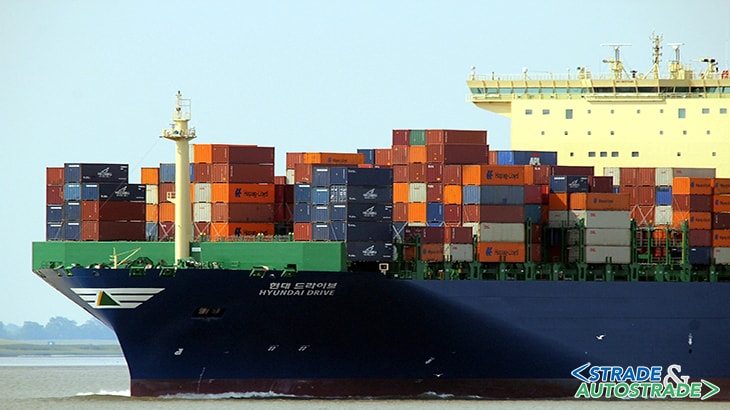
Ports can in some cases also offer space for green energy production and large-scale energy storage. Ports are already under considerable pressure today to lower the pollution arising from their activities and this pressure will continue in the future in line with European Green Deal objectives and related commitments to carbon neutrality and zero pollution.
They can also contribute to reduce marine pollution by adapting their infrastructure to the provisions of the Port Reception Facilities Directive for waste collection from ships.
In addition, the Commission will take action to regulate access of the most polluting ships to EU ports and to oblige docked ships to use shore-side electricity.
As the pollution levels come down, European ports will probably gradually become better integrated with the social and commercial activities of the cities in which or close to which they are located near”.
“S&A”: “How, in the next few years, will EU environmental policies affect the organization of ports in terms of maritime affairs?”.
“Virginijus Sinkevičius”: “The organization of ports is largely under the competence of the Member States. However, the EU Legislation contains strict environmental requirements that will have to be fully implemented in the coming years.
As many of Europe’s large ports are located close to densely populated areas, the emissions of pollutants from the port operations can constitute a considerable part of the total exposure to harmful pollutants, which many Europeans still suffer from. I expect that ports increasingly will have to respond to this situation.
This response will probably include organizational changes, such as moving cruise ships further away from city centers, focusing more on offering electric power supply to ships at berth, electrification of ports material and short sea shipping like short distance ferries, or ensuring better coordination between arriving ships and waiting trucks and trains.
It could perhaps also be expected that the larger European ports would deepen their cooperation in terms of coordinating investments and exchanging information.
At international level, we will continue our efforts to designate the Mediterranean Sea as an Emission Control Area and in this way limit harmful pollution from ships as has already been done in the Baltic and the North Sea”.
“S&A”: “Which kind of actions have been taken for the EU maritime transport of essential goods during the health emergency for Covid-19? And which ones will be taken for a new start?”.
“Virginijus Sinkevičius”: “Let me first say that maritime transport is one of the safest modes of moving cargo in these particular circumstances, since it can transfer large quantities of goods with fewer displacements of workers and personal contacts.
Ensuring continuity of maritime freight transport has been a priority for the Commission since the start of the pandemic. We have been actively promoting operational measures and facilitated economic relief for the operators.
Measures for maritime transport workers are detailed in the Guidelines on protection of health for persons on board ships. These include a range of recommendations to reduce transmission of the coronavirus, protecting crews and port workers and ensuring that crew changes can take place.
For the changeovers, Member States are invited – and have started – to designate ports with good transport connections. Moreover, workers in maritime transport have been designated essential, as they are the ones keeping maritime services running.
This means they should be allowed to travel and cross borders to reach their ships and return home after their contracts end. A lot of progress has been made, with most Member States now permitting crew changes.
The Commission has also introduced a Temporary Framework in State Aid rules to support the economy in the context of the coronavirus outbreak which can also be used to offer economic assistance to maritime operators”.

In this so difficult time because of Covid-19, it is very appropriate to thank the Commissioner for being so helpful despite the emergency.
Curriculum Vitae of Virginijus Sinkevičius
Virginijus Sinkevičius was born in Vilnius, Lithuania, on November 4.
Graduated in 2012 in Economics and Social Studies at Aberystwyth University (UK) and acquired a Master of Art in European Studies at the University of Maastricht (Netherlands) in 2013, from 2011 to 2015 was author and curator of the news portal “The Lithuanian Tribune”.
From 2013 to 2104 he was Assistant Project Manager at the Centre for European Policy Analysis (CEPÁ) in Washington (USA), in 2014 he worked as Project Manager at AB Lietuvos Paštas and, from 2015 to 2016, Project Coordinator at Lithuanian Airports.
In 2016, he was Team Leader at the Group for Regulatory Affairs of Invest in Lithuania and Vice President of the Lithuanian Farmers and Greens Union.
![]() Per la versione in Italiano: https://www.stradeeautostrade.it/incontri-e-interviste/virginijus-sinkevicius-luomo-che-crede-nelleconomia-circolare/
Per la versione in Italiano: https://www.stradeeautostrade.it/incontri-e-interviste/virginijus-sinkevicius-luomo-che-crede-nelleconomia-circolare/

